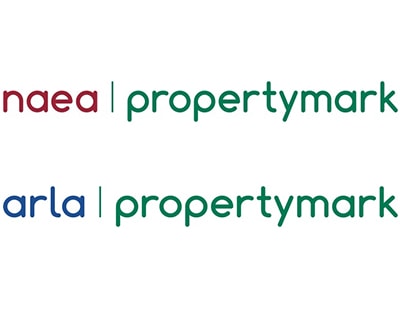Sales Market: The UK housing market is at an inflection point, which means mixed signals for buyers and sellers. Inflation has fallen quickly and sent the cheapest mortgage rates below 4.0 per cent - but Knight Frank is warning investors that some housing market data has been slow to catch up.
Three separate recent announcements captured this fact perfectly, the agency suggests.
The growing sense of positivity was evident when Nationwide announced that house prices had risen 0.7 per cent in January, narrowing the annual decline to just 0.2 per cent. However, when the Bank of England said mortgage approvals had crept higher in December there was only a hint of good news. And HMRC was positively gloomy by comparison when it announced that housing transactions had fallen in December.
But the agency says this: Step back from the numbers and the three announcements tell you more about how long it takes to buy a house than anything else.
“As lagging indicators turn more positive, we expect sales volumes to increase alongside house prices this year. There should even be a noticeable spring bounce provided Rishi Sunak can stick to his preferred timetable of an election later in the year.
“Leading indicators have also turned more positive in prime London postcodes. The number of market valuation appraisals requested by prospective sellers was 15 per cent higher in prime central and prime outer London in January compared to the same month last year.
“Furthermore, the number of new buyers registering was up by eight per cent, Knight Frank data shows. Meanwhile, the number of sales instructions was down by 16 per cent and exchanges were 17 per cent lower, reflecting the discrepancy between leading and lagging indicators.”
The agency says average prices in prime central London were down by one per cent on the quarter, taking the annual decline to 2.3 per cent in January. Meanwhile, prices were flat in prime outer London, which narrowed the average annual fall to 1.5 per cent.
Knight Frank continues: “While the economic picture has become more settled and mortgage rates have fallen, political volatility is rising. The risk of Tory in-fighting and an early election may grow later this month depending on the results of two by-elections. Not that recent polls have left people in much doubt about the likely outcome of this year’s general election.”
Lettings Market: Rental values fell closer to their longer-term average in January, as supply continued to increase.
Annual growth in prime central London (PCL) of 7.2 per cent in January compared to 18.3 per cent a year earlier. In the five years before the pandemic, the average figure was a drop of 0.8 per cent.
In prime outer London (POL), rents grew by 6.2 per cent over the last 12 months, which was a more palatable figure for tenants than the 16.4 per cent recorded last January. However, that compared to a pre-Covid average fall of 1.6 per cent.
Supply has been rising due to a relatively subdued sales market, where low transaction volumes and minimal price growth has led to more sellers exploring the rental option. An active sales market during the pandemic, particularly throughout a 14-month stamp duty holiday, meant the supply of rental properties fell as owners capitalised on buoyant conditions by selling up.
New rental listings in PCL and POL were seven per cent below their five-year average in the final quarter of last year, Rightmove data shows. That compared to a decline of 29 per cent in the last three months of 2022 and an equivalent drop of 40 per cent in 2022.
The result of supply returning to more normal levels is that a growing number of asking rents are having to be reduced.
Knight Frank summarises the larger trends for investors this way: “Landlords have been leaving the sector in recent years primarily due to more red tape and tax. Even those who haven’t sold up typically prefer shorter tenancy lengths to leave themselves the flexibility to do so. As well as the prospect of tighter green regulations, the Renters Reform Bill currently going through Parliament is designed to provide tenants with more rights, including a ban on no-fault evictions.
“However, there are growing concerns among some at Westminster that the impending general election means the government may run out of time before it can bring in the new legislation, creating even more uncertainty.
“What might an incoming Labour government do if time runs out for the Tories? Given what some on the opposition benches have said about how much further they would go than the current proposals, they are unlikely to reverse the flow of departing landlords or reduce the upwards pressure on rents any time soon.”










.png)










Join the conversation
Be the first to comment (please use the comment box below)
Please login to comment